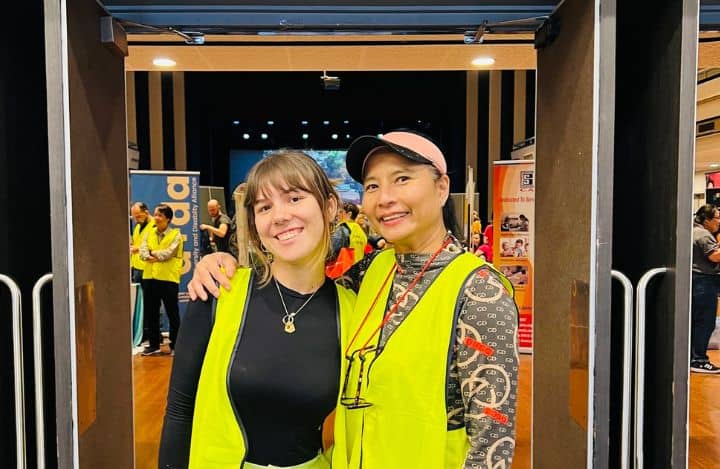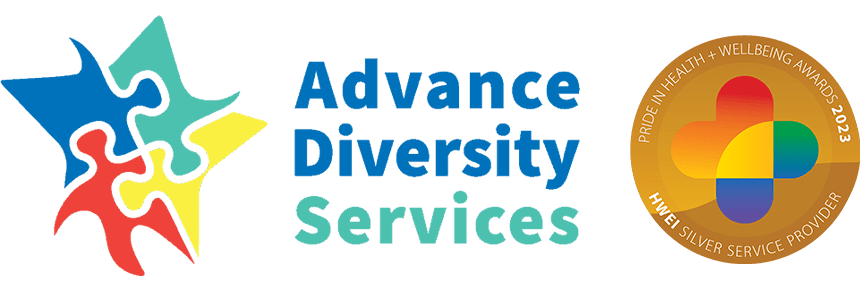Amal Dib completed her student placement with ADS from August to November 2023. During her placement, she was encouraged to step out of her comfort zone. She says the skills she used enabled her to create trusting connections with clients and community groups and to work to ensure their interests were respected and uplifted.
What drew you to do your student placement with ADS?
I was allocated my social work placement at ADS by my university. After researching the organisation and doing my pre-placement interview, I saw the values of ADS embedded in the large range of work they do. I knew after that it was going to be a great fit!
What are you studying and where? And how has your personal history and/or your cultural background informed your work with ADS?
I am currently in my third year of the Bachelor of Social Work at The University of Sydney. I am the daughter of migration pathways. My dad was born in Lebanon and he and the family migrated to Australia during Lebanon’s Civil War. Growing up I was heavily involved in social justice and most specifically the rights of Refugees and Asylum seekers. I witnessed my family members subjected to racism, islamophobia, isolation and oppression – not only through people in the community but also institutionally. I also witnessed their resilience, resistance and strength, which often went unnoticed. As I am white-passing, I have continued to understand the privilege I hold; I do not get thrown the labels and stereotypes that my family so regularly do. Because of this, I chose to study social work: to be able to work in this field, and to try and uphold social justice, whether that be in one person’s life or on a larger scale. Understanding the role that culture, family, and religion plays in people’s lives has greatly helped me in my social work practice ensuring culturally safe and responsive work.

What ADS programs have you assisted with and how have you been encouraged to apply your studies and/or expand your skills in your role?
I have been involved in a large range of programs, mostly working alongside the Specialised Intensive Services (SIS) program and the Domestic Family Sexual Violence (DFSV) program in casework and community project settings. I have also been privileged to support some of ADS’s clients, when at Court and Police Stations, through advocacy and companionship. I was able to be a part of the Migrant Information Day (MID) Working Group, Ukrainian Women’s Group, Multicultural Women’s Hub, Careers and Employment Expo, Youth Learn to Drive Program, English Conversation Classes, SETS group programs and to help with casework.
I was able to apply my studies every day at ADS. As social work students we are encouraged to reflect on theories to guide us in best practice. Each day I utilised the concepts of anti-oppressive practice, strengths-based approach, trauma-informed, systems theory and person-centred practice. Being able to see how theories can be applied in practice has been instrumental to my learning. Being encouraged by the team to step out of my comfort zone and into unfamiliar situations has also been significant in my learning and expanded my skills.
What has been the most challenging work you have done with ADS during your time as a student on placement?
The most challenging thing about this placement has been witnessing, first-hand, the impacts of neo-liberal and white colonial systems. The severe lack of funding in the settlement and multicultural community space has been frustratingly eye-opening. The housing crisis, the exclusionary visa provisions, the inadequate financial support, the rigorous processes to receive assistance and the general ignorance of cultural practice in services and key bodies is ever-present. In this placement, I have had to reckon with the inner frustration of not being able to change the overarching system and rather focus on what we can do in the now to ensure clients are best supported.
What strengths have you brought to your placement?
My strengths have been active listening, reflexive thinking, ethics and interpersonal communication. These skills have allowed me to create trusting connections with clients and community groups on a deeper level, as well as work to ensure their interests are being respected and uplifted.
What has been your proudest moment, greatest achievement, deepest connection in your time at ADS?
I’m not able to look back and pinpoint one moment that I could rule as my proudest. Instead, I have reflected throughout this placement and now, at the end as a whole, and it makes me incredibly proud. From assisting with Centrelink, to resume writing, to supporting DFV disclosures at a police station, to encouraging and arranging a university application for a client. Every experience has been a proud moment. Being able to go into situations that are completely new to me, and being given the trust to do that – not only from the staff at ADS but also the clients themselves – is what makes me the proudest.

‘Be You With Us’ is ADS’s tagline, and it reflects the organisation’s commitment to welcoming and accepting everyone of all ages, gender, culture, sexuality, and religious beliefs. How have you been encouraged to ‘Be You With Us’ during your time with ADS?
ADS staff have always encouraged me to be myself and have never been made to feel like I had to reduce any part of my identity, but rather the opposite. At ADS I have felt like my opinions, my thoughts and my ideas were recognised. I felt a part of the team and was extremely welcomed.
What more should the Australian Government be doing to welcome migrants and refugees and to ensure they find the support they need to adjust quickly and well to life in Australia?
To answer this question, I would need an entire essay. The Australian Government’s ‘support’ for refugees and migrants is a lacklustre attempt at service provision. The government must work harder to meet the needs and wants of refugees and migrants by listening to the community, upholding their voice and instilling relevant and holistic policies, programs and funding that places them at the centre, not neoliberal ideologies. I think the notion of adjusting quickly is a common white, colonial mindset. To expect and want refugees and migrants to adjust ‘quickly’ increases re-traumatization and places immense pressure to adapt to ‘Australian’ ways of life, which often are centred in whiteness. Instead, I believe the Government needs to invest in programs that walk alongside refugees and migrants at their own pace, to remove the fast-paced and rigid reporting systems, and to centre refugees and migrants as experts in their lives.

What is your ultimate goal and how has the work you’ve done with ADS equipped you for what you would like to do next?
I don’t think I am able to say what the future holds for me but my ultimate goal is to be able to ensure people feel like they aren’t alone and that there will always be someone backing them. It would be somewhat naive to say my ultimate goal is to make systemic change and change the world as much as I would like to. Focusing on that alone risks me ignoring the reason I came into social work; for people. My goal is to appear as a real person, someone that can be relied on, to be given the privilege of trust, to advocate and to make a conscious effort to continuously respect, hold and value the stories that are shared with me. I won’t be the one making change, but rather the clients and communities themselves, and I will get the honour of standing beside them through that transformation.
Please finish this sentence: I love ADS because … you can see the incredible passion that the Settlement and Community staff have in supporting communities. Working alongside such community- and socially just-minded service providers has been an amazing experience and I have learnt so much from them.
